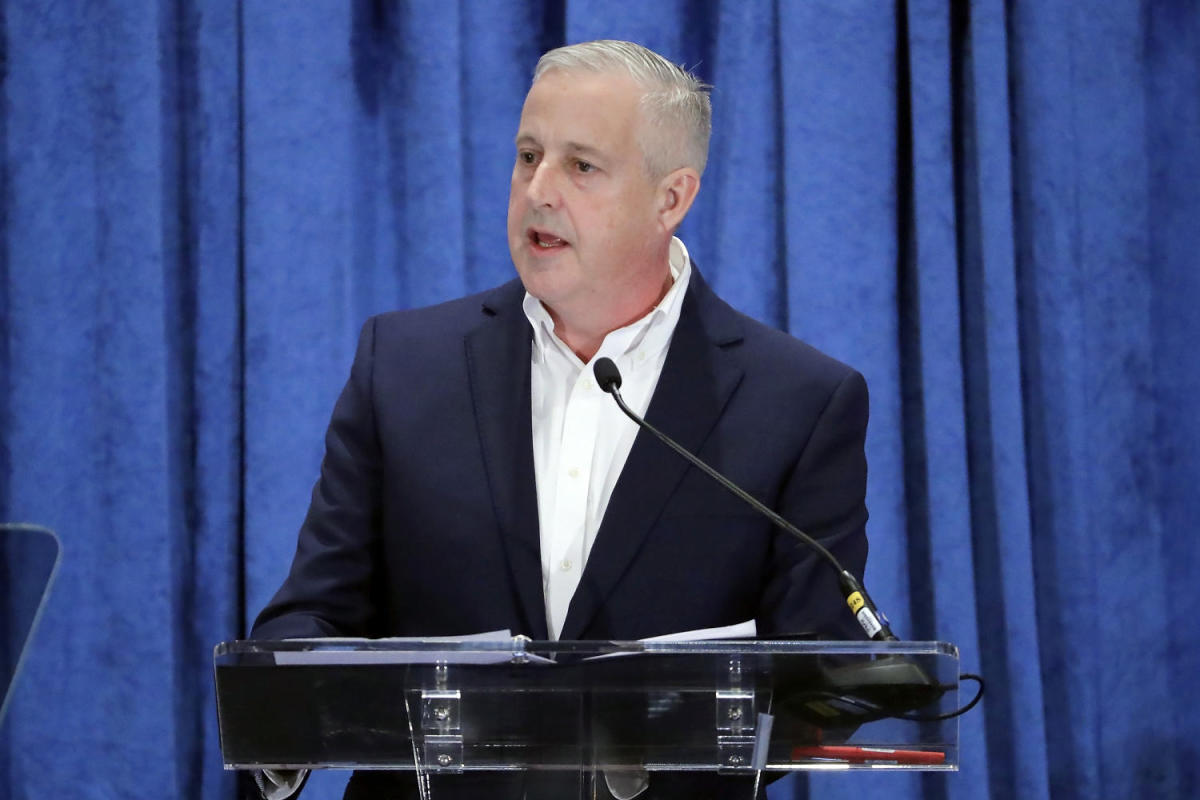WASHINGTON — The Biden administration has 43 presidential nominees still awaiting confirmation in the Senate as Congress prepares to break for the holidays, a delay that is putting U.S. national security and foreign policy interests in jeopardy around the world, the State Department said Friday.
Any nominee not confirmed before the Senate ends its session, which is expected as soon as next week, will have to be renominated by the White House next year, leading to further delays. Those awaiting confirmation include Kurt M. Campbell, whom President Joe Biden is trying to appoint as deputy to Secretary of State Antony Blinken.
The blockade of diplomatic nominees has continued as many Republicans in Congress have sought to condition support for Biden’s foreign policy priorities on winning right-wing policy concessions. Some have shown a willingness to leave holes in the national security and diplomatic staff, even as the Biden administration confronts wars in Ukraine and the Gaza Strip.
Sign up for The Morning newsletter from the New York Times
A single senator can hold up a nomination, and several GOP senators have put holds on the nominees, similar to what Sen. Tommy Tuberville, R-Ala., did for months with at least 425 nominees to Pentagon positions, before senators in his own party rebelled against him.
The State Department said it was dealing with intense hostility among some Republican senators toward career Foreign Service officers.
“Since the beginning of this administration, the State Department has endured a relentless attack on career Foreign Service nominees, in particular,” the department said in a statement. “Unprecedented, unrelated demands and often inaccurate perceptions have permitted adversaries like China and Russia to gain diplomatic ground.”
The agency’s rebuke echoed remarks that Blinken made in July, calling on senators to end their blockade.
The State Department said that confirming Campbell to the deputy secretary position was important for the department’s “critical work” to defend Ukraine, counter Chinese competition and “work toward peace in the Middle East,” a reference to the Israel-Hamas war. Campbell, the top White House policy aide on Asia, was confirmed by the Senate in the Obama administration to serve as the assistant secretary for East Asia and Pacific affairs.
Victoria Nuland, the department’s undersecretary of state for political affairs, has been serving as the department’s acting deputy.
Other nominees include ambassadors for posts that the State Department called “critical to maintaining security, including Haiti, Somalia and Nigeria.” The list of unfilled posts also includes the counterterrorism coordinator, the ambassador to the African Union, the deputy representative for the United Nations and the ambassador to U.N. agencies in Rome, which work on global food and agriculture issues.
Thomas Yazdgerdi, president of the American Foreign Service Association, a labor union, urged the Senate to act on the nominees.
“These are dedicated men and women who have devoted their lives to diplomacy and who have proven themselves worthy of taking on the highest responsibilities,” he said.
Brett Bruen, a former U.S. diplomat, faulted Republicans for “playing politics with the leadership of our embassies in some of these places at a moment when we have so many global crises.”
Republican senators who have placed holds on ambassador nominees during Biden’s presidency include J.D. Vance of Ohio, Ted Cruz of Texas and Rand Paul of Kentucky. Earlier this year, Vance sent questionnaires to State Department nominees to determine whether they might be “radical” or too “woke” by his standards, he told Politico in July.
Paul said in June that he would block Senate action on all State Department nominees until the Biden administration provided him with documents related to the origins of the coronavirus, which he argues likely leaked from a Chinese laboratory.
Cruz infuriated State Department officials early in the Biden administration by delaying numerous nominees but has recently played a smaller role than Vance and Paul. The offices of Vance and Paul did not respond to requests for comment; a spokesperson for Cruz said his office does not comment on whether any holds on nominees are in place.
Twenty-seven nominees are stuck in the Senate Foreign Relations Committee, several since 2022, the State Department said. The committee has to schedule hearings or hold meetings to move them to the floor for a vote.
Some U.S. officials said the top Republican member on the committee, Sen. Jim Risch of Idaho, was not agreeing to enough such meetings to keep the process rolling.
The office of Risch had no comment. The chair of the committee, Sen. Ben Cardin, D-Md., also had no comment.
There is still a chance for some nominees to be confirmed this year. The Senate confirmed Lisa Johnson as ambassador to Lebanon on Thursday night.
One key nominee on whom the Senate moved relatively quickly was Jacob Lew, a former Treasury secretary in the Obama administration whom Biden nominated to be ambassador to Israel on Sept. 5. Lew was given a committee hearing 11 days after the Oct. 7 Hamas attacks in Israel and confirmed by a narrow vote Oct. 31.
c.2023 The New York Times Company

Amanda Smith is a dedicated U.S. correspondent with a passion for uncovering the stories that shape the nation. With a background in political science, she provides in-depth analysis and insightful commentary on domestic affairs, ensuring readers are well-informed about the latest developments across the United States.






